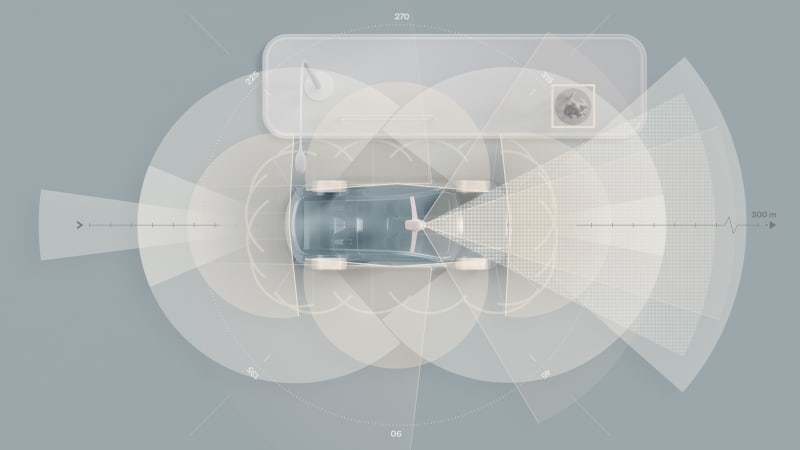DETROIT — Volvo Automobiles options to make lidar sensors normal devices in a new technology of its XC90 SUV following year as part of a technique to deploy more sophisticated safety and automated driving technologies that depends on exact photographs of the planet all over the motor vehicle.
The final decision by Volvo Automobiles to fold lidar sensors into the base price tag of its motor vehicle is a bet that customers will pay out for the extra functionality. It has been named a “watershed second” by some in the field.
The Swedish brand, owned by China’s Geely group, is taking a sharply diverse road from rival Tesla Inc, which has shunned lidar and radar and is concentrating on just cameras and software package for its automated driving methods.
Self-driving auto sensor startup Luminar Systems Inc will provide Volvo Automobiles with its Iris lidar and Sentinel software package in combination with software package from Volvo in the electrical XC90 SUV that will be designed in South Carolina and go on sale in 2022, the firms claimed.
The new technologies are built to address traffic circumstances that usually end result in intense injuries and fatalities. About time, the technologies will turn out to be more able and will significantly intervene to prevent collisions, the firms claimed.
“By possessing this components as normal, we can consistently boost safety options about the air and introduce sophisticated autonomous travel methods,” Volvo Automobiles Main Govt Hakan Samuelsson claimed in a statement.
Lidar sensors, which use laser light-weight pulses to render exact photographs of the atmosphere all over the auto, are observed as crucial by lots of automakers to help impediment detection and avoidance in sophisticated driving guidance methods and ultimately in fully automated automobiles.
Finish sensor established on on electrical successor to XC90
Until now, lidar has been far too high priced for automakers to employ as nearly anything other than an selection that costs added. Luminar CEO Austin Russell claimed the pricing for its lidar is on the order of $1,000 for every unit.
Volvo Cars’ chief technologies officer, Henrik Eco-friendly, claimed cost is not the concentrate for the Swedish car brand. While the price tag of the technologies will arrive down about time as volumes improve, the rollout will accelerate use of automated products and services that the organization can cost for.
Eco-friendly claimed subsequent automobiles will incorporate the lidar package as normal, and that this continues Volvo Cars’ heritage of being 1st to standardize lots of safety options, including three-place seat belts and aspect-impact airbags.
“This is variety of a watershed second for the field,” Russell claimed in an interview. “You really don’t have an selection package for airbags. You really don’t have an selection package for seatbelts. Why must you have an selection package for existence-conserving technologies?”
Russell declined to say what the deal will necessarily mean economically for Luminar or go over prospective volumes, but the XC90 is Volvo Cars’ prime-selling U.S. motor vehicle and 3rd-most well known globally previous year with almost 92,five hundred product sales.
Luminar claimed in March it had struck a deal with a software package unit of Volvo Automobiles, Zenseact, to offer a combination components-software package system to electric power autonomous options for Volvo automobiles. Luminar claimed at the time the system also would be offered to other automakers.
The system will intention to deliver automated driving, but only on highways, Luminar has claimed. It will use a computing chipset from Nvidia Corp and also use cameras and radar sensors in addition to Luminar’s lidar unit, but can be built to perform with the cameras and radars that lots of automakers have presently bundled in their automobiles.
SAIC Motor Corp, China’s premier automaker, has claimed it will offer self-driving automobiles in that market place following year in partnership with Palo Alto, California-based Luminar.
Luminar, established in 2012, is a single of several U.S. lidar companies in the previous year to go public by using reverse mergers with blank-check firms.
(Reporting by Ben Klayman in Detroit Enhancing by Matthew Lewis)
Relevant Video clip:






More Stories
On This Thanksgiving, I’m Thankful to be a Corvette Owner
Remixed By Prazis Air Suspension
Volvo EX90 – Car Body Design